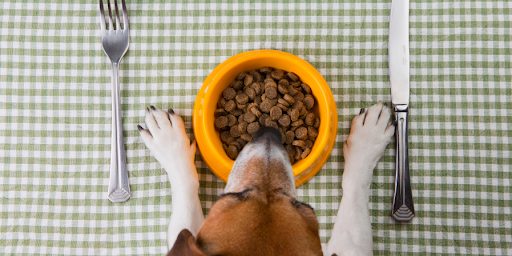Feeding pets human food is a common practice among pet owners, but it’s essential to understand which foods are safe and which can be harmful. This guide outlines the dos and don’ts of sharing human food with your pets to ensure their health and well-being.
Harmful Human Foods for Pets
Certain human foods can be toxic to pets and should be strictly avoided:
- Chocolate: Contains theobromine and caffeine, which are toxic to dogs and cats, leading to vomiting, diarrhea, and even seizures.
- Onions and Garlic: These can damage red blood cells in pets, causing anemia.
- Grapes and Raisins: Can cause kidney failure in dogs.
- Xylitol: A sugar substitute found in sugar-free products that can lead to rapid insulin release, causing hypoglycemia in dogs.
- Alcohol: Even small amounts can be dangerous, leading to central nervous system depression.
Safe and Healthy Treats to Share
While many human foods are unsafe, some can be shared in moderation:
- Carrots: Low in calories and high in fiber and vitamins.
- Apples: Provide vitamins A and C; ensure seeds and core are removed.
- Peanut Butter: A good source of protein and healthy fats; choose unsalted and xylitol-free varieties.
- Cooked Lean Meats: Chicken, turkey, and beef can be healthy protein sources when cooked without seasoning.
- Pumpkin: Aids digestion and is rich in fiber.
How to Manage Portion Control for Pets
Overfeeding, even with healthy treats, can lead to obesity and related health issues:
- Follow the 10% Rule: Treats should make up no more than 10% of your pet’s daily caloric intake.
- Use Small Pieces: Offer bite-sized portions to prevent choking and overconsumption.
- Monitor Weight: Regularly check your pet’s weight and adjust treat portions accordingly.
Importance of Consulting a Vet for Dietary Changes
Before introducing new foods or making significant dietary changes, consult your veterinarian:
- Assess Health Conditions: Some pets have health issues that require specific diets.
- Prevent Allergic Reactions: Vets can help identify potential food allergies.
- Ensure Nutritional Balance: Professional guidance ensures your pet’s diet remains balanced and healthy.
By understanding which human foods are safe and managing portions appropriately, you can share occasional treats with your pets without compromising their health. Always consult your veterinarian before making dietary changes to ensure the best care for your furry companions. If you’re seeking personalized advice, consider reaching out to a veterinary doctor near me for guidance tailored to your pet’s specific needs.








